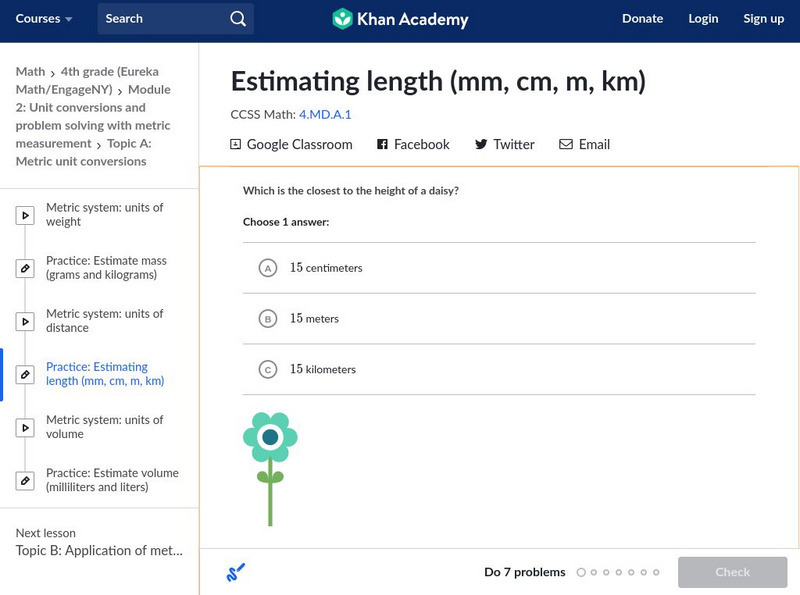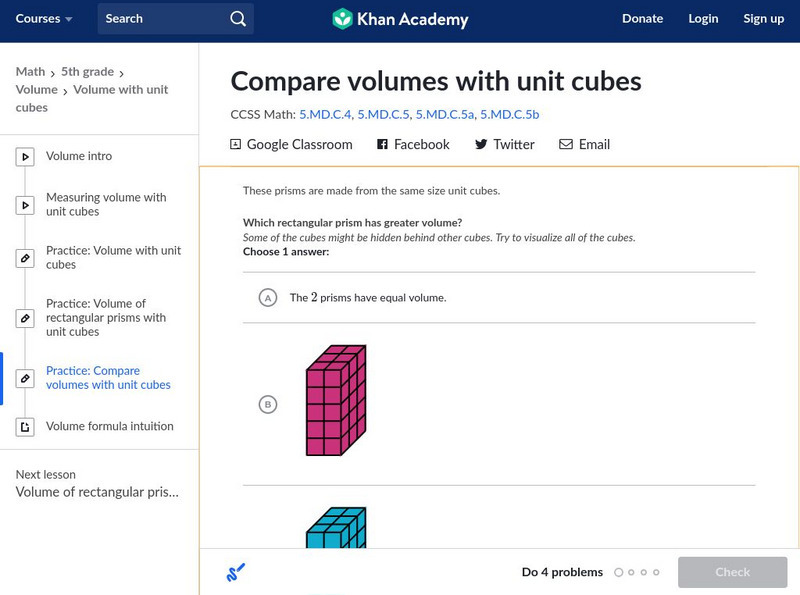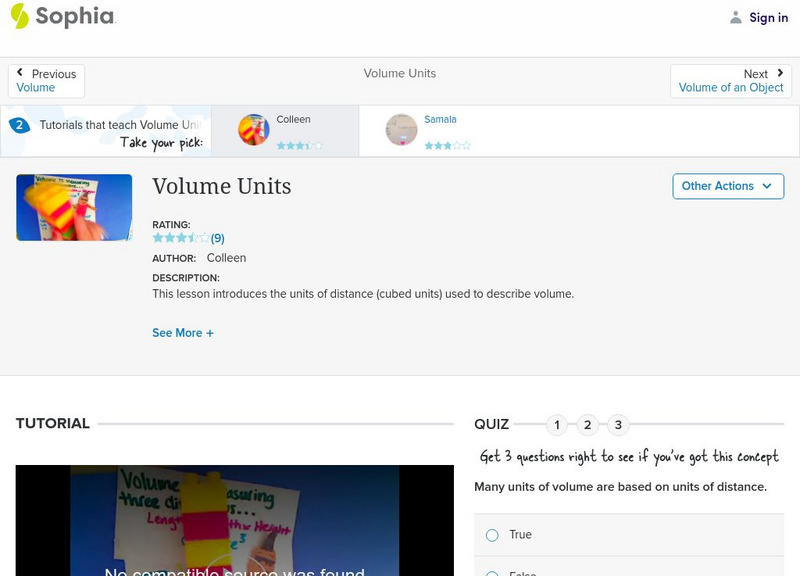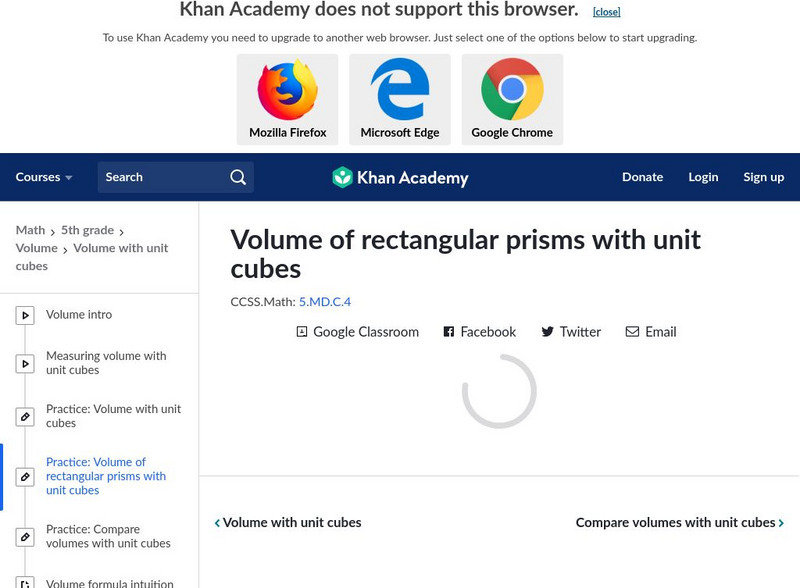Hi, what do you want to do?
Curated OER
Mapping a Stream
Students map an actual local waterway. They create full color scale drawings that include windfalls, plant cover, streambed composition, and landmarks such as trees, boulders, and slumps. This is a long-term project that involves...
Curated OER
Team Puzzles
Fourth graders work in co-operative teams of four to complete a puzzle. Each student initially works independently, and then the team jointly puts together the four shapes they have individually made, to complete the puzzle.
Khan Academy
Khan Academy: Estimating Length (Mm, Cm, M, Km)
Practice estimating the length of real life objects using metric units. Students receive immediate feedback and have the opportunity to try questions repeatedly, watch a video or receive hints.
Khan Academy
Khan Academy: Convert to Smaller Units (Mm, Cm, M, & Km)
Practice converting a metric measure of length to a smaller unit. Students receive immediate feedback and have the opportunity to try questions repeatedly, watch a video or receive hints.
Khan Academy
Khan Academy: Compare Volumes With Unit Cubes
Recognize volume as an attribute of solid figures and understand concepts of volume measurement. Students receive immediate feedback and have the opportunity to try questions repeatedly, watch a video or receive hints.
Sophia Learning
Sophia: Volume Units
This lesson introduces the units of distance (cubed units) used to describe volume. Students watch a video tutorial and then can take an online quiz.
Khan Academy
Khan Academy: Volume of Rectangular Prisms With Unit Cubes
Find volume of 3-dimensional figures by counting unit cubes. Students receive immediate feedback and have the opportunity to try questions repeatedly, watch a video or receive hints.
Illustrative Mathematics
Illustrative Mathematics: 5.md Box of Clay
This task provides an opportunity to compare the relative volumes of boxes in order to calculate the mass of clay required to fill them. Aligns with 5.MD.C.












